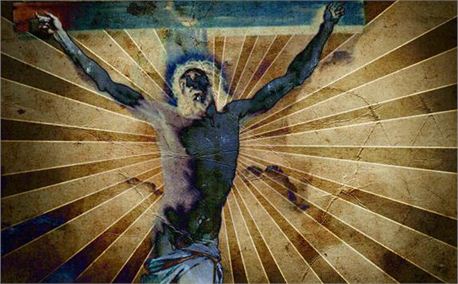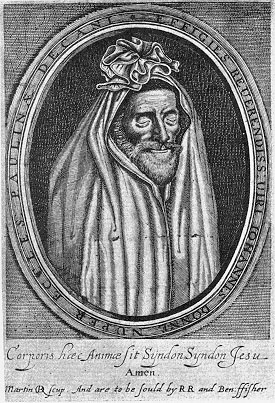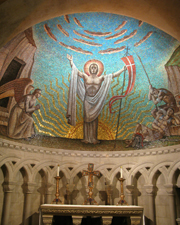He was a young man, and I could see fear in his eyes as he gripped the railings of the bed and struggled to breathe, sucking in heavily through the plastic mask feeding him oxygen. His body was wasting away from cancer, and the infections that had crept into his lungs were now forcing every compensatory mechanism into extremis. He wanted to fight and live, but there was little left for the ICU to offer. I had been pleading with him for days to consider hospice and a more peaceable passing at home where he could be surrounded by family and friends, but to him that meant giving up.

So we had continued to do everything, and as predicted we eventually came to that point where every biomarker and technological parameter heralded physiologic disaster. “Your breathing cannot hold on its own. We will need to intubate you soon, but your body is so sick that we will probably never be able to take the breathing tube out.” I paused. We had had this conversation before. “Do you still want us to do it? I need to tell you the truth; you will almost certainly die either way. If we transition you to hospice, you can go home and pass away with your family and friends, and we will make sure that you are comfortable. But if you still want us to do everything – intubation, CPR, shocks – you will still die, but it will be here in this hospital, and it will be brutal. Do you want us to intubate you? Do you want CPR?” He nodded vigorously, still afraid, still adamant.
He was intubated. Overnight, his heart stopped twice requiring chest compressions, multiple shocks, and catheters and needles everywhere. The next day, his heart stopped again and did not recover. It was a brutal death, and even though it was not what anyone, himself and myself included, would have wanted, it was what he chose. It still bothers me that that was one of his final conversations in this life.
“Death, be not proud, though some have called thee
Mighty and dreadfull, for, thou art not so…”
Every now and then, I watch a patient die and think about these words. In the hospital, dignity is often lacking in death. Like the young man, we often struggle and fight and die in fear. We look for consolation that our souls will become eternal even as our bodies become infected, necrotic, pale, lethargic, gaunt. Death is inevitable, so how can it not be Mighty? Death is the end of all we know, so how can it fail to be Dreadful? Who would not want to escape such a grisly end?
In your relationships with one another, have the same mindset as Christ Jesus:
Who, being in very nature God,
did not consider equality with God something to be used to his own advantage;
rather, he made himself nothing
by taking the very nature of a servant,
being made in human likeness.
And being found in appearance as a man,
he humbled himself
by becoming obedient to death—
even death on a cross! – Philippians 2

John Donne, the poet and author of Death, be not proud was well acquainted with illness and death. A parishioner during the height of the Bubonic Plague, he himself came to the edge of death. As Phillip Yancey writes in Reaching for the Invisible God:

Meanwhile Donne himself came down with an illness the doctors initially diagnosed as plague (it turned out to a spotted fever, like typhus). For six weeks he lay tremulous at the threshold of death, listening to the church bells toll each new fatality, wondering if he would be next (“Never send to know for whom the bell tolls; it tolls for thee”). During this dark time Donne, forbidden to read or study but permitted to write, composed the book Devotions, a meditation on suffering. He was tuning his instrument at the door, he said – the door of death…
At first, confined to bed, churning out prayers without answers, contemplating death, regurgitating guilt, he can find no relief from ever-present fear. Obsessed, he reviews every biblical occurrence of the word fear. As he does so, it dawns on him that life will always include circumstances that incite fear: if not illness, financial hardship, if not poverty, rejection, if not loneliness, failure. In such a world, Donne has a clear choice: to fear God or to fear everything else, to trust God or to trust nothing…
In a passage reminiscent of Paul’s litany in Romans 8 (“For I am convinced that neither death nor life, neither angels nor demons… will be able to separate us from the love of God”), Donne checks off his potential fears. Great enemies? They pose no threat, for God can vanquish any enemy. Famine? No, God can supply. Death? Even that, the worst human fear, raises no permanent barrier to those who fear God. Donne concludes that his best course is to cultivate a proper fear of the Lord, for that fear can supplant all others. He prays, “as thou hast given me a repentance, not to be repented of, so give me, O Lord, a fear, of which I may not be afraid.”
[Leo Tolstoy writes] “Whatever faith may be, and whatever answers it may give, and to whomsoever it gives them, every such answer gives to the finite existence of man an infinite meaning, a meaning not destroyed by sufferings, deprivations, or death.”
I am not sure exactly why the young man chose to persist like he did. Perhaps he did not feel that it was a choice, that his relationships and ambitions and hopes and dreams for the future, all the features we glorify about youth and human life did obligate him to struggle. But he died. He did not grasp what he wished to obtain. How ironic is it then that Jesus Christ, though humbly choosing death in the end, did receive satisfaction?

Therefore God exalted him to the highest place
and gave him the name that is above every name,
that at the name of Jesus every knee should bow,
in heaven and on earth and under the earth,
and every tongue acknowledge that Jesus Christ is Lord, to the glory of God the Father. – Philippians 2
What does Easter tell us? It says that we do not struggle in vain, even as we submit to death, for we are promised satisfaction if our ambition rests in what is eternal.
DEATH be not proud, though some have called thee
Mighty and dreadfull, for, thou art not so,
For, those, whom thou think’st, thou dost overthrow,
Die not, poore death, nor yet canst thou kill me.
From rest and sleepe, which but thy pictures bee,
Much pleasure, then from thee, much more must flow,
And soonest our best men with thee doe goe,
Rest of their bones, and soules deliverie.
Thou art slave to Fate, Chance, kings, and desperate men,
And dost with poyson, warre, and sicknesse dwell,
And poppie, or charmes can make us sleepe as well,
And better then thy stroake; why swell’st thou then;
One short sleepe past, wee wake eternally,
And death shall be no more; death, thou shalt die.
– John Donne
David graduated from Princeton University with a degree in Electrical Engineering and received his medical degree from Rutgers – Robert Wood Johnson Medical School with a Masters in Public Health concentrated in health systems and policy. He completed a dual residency in Internal Medicine and Pediatrics at Christiana Care Health System in Delaware. He continues to work in Delaware as a dual Med-Peds hospitalist. Faith-wise, he is decidÂedly Christian, and regarding everything else he will gladly talk your ear off about health policy, the inner city, gadgets, and why Disney’s Frozen is actually a terrible movie.

Thoughtful reflection — thank you for sharing… I assume that as a young doctor you have read Margaret Edson’s Wit, or may have seen Emma Thompson’s amazing performance of it. If not I highly recommend it… (the Donne sonnet figures in it prominently, that’s why I mention it.